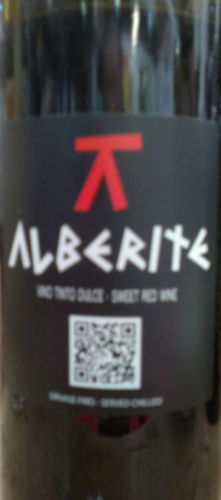The question: should we choose natural and organic food over other produce? The answer: maybe yes and maybe no. I’m putting on my fence-sitting hat here, as for me there cannot be a straight answer. Financial, lifestyle or health choices, including dietary restrictions, often dictate our eating and drinking habits, but for me, the taste of what I’m consuming is of paramount importance. I dislike mass-produced low quality produce, as much as anyone, but just because something is produced on a grand scale and may not qualify as "natural", due to its list of ingredients, does not automatically void it of nutritional or organoleptic worth. However, could the Natural Food Show component of the "Natural & Organic Products Europe Fair" at London’s Kensington Olympia this week convince me to change my eating and drinking habits? I went along to find out more.
Judging by the amount of people crammed into Olympia’s Grand Hall, interest in natural and organic products shows little sign of abating! The focus on natural food and indeed vegetarianism may be gaining more ground since the horsemeat scandal, so I started off with some surprisingly tasty and well-textured vegetarian sausages made in a Germanic style. Another stand offered dairy-free cheese spreads which again were not far off in flavour and general mouth feel from the "real" product. So far, a very impressive line-up. A really interesting experience was provided by seaweed pesto from Galician company,
PortoMuiños, available online from Cress Ltd.. Combining traditional ingredients with seaweed to create a protein, fibre and mineral-rich sauce, this is a nutritionally superior product to many pesto sauces currently on the market. Seaweed products may be of particular interest to vegetarians, as they can contain up to three times as much iron as lentils, more calcium than milk, high levels of Vitamins A and B12 and may be beneficial for gut motility too. Leaving that aside, I liked the flavour and would happily eat this alongside my pasta.
Lactose, soya, nut or dairy-free diets are becoming more mainstream due to health concerns and food intolerances, but cutting out obvious sources of calcium and other nutrients brings its own set of problems, of course. Many of us probably enjoy a bowl of breakfast cereal, replete with fruit, nuts and sources of fibre, swimming in milk, every morning. Milk substitutes, such as those made from soya or rice are not to everyone’s liking and I, for one, just do not like the taste of these alternatives. However, I was very pleasantly surprised by a new "Flax Milk" product from Good Karma. 3Omega6 is an all-natural, gluten, soya, nut and dairy-free milk made from flax, which is a good source of omega3, particularly for vegans. With two versions, unsweetened and slightly sweetened, I found the flavour creamy, clean and not too dissimilar from milk. I would quite gladly try this on my cereal for a healthy alternative to my usual full-fat option.
Gum Tree Apiary from Western Australia produce a delicious pure honey, relatively low in glucose and high in antioxidants, so may be of particular interest to diabetics. They offer a range of gourmet honeys and I tried the "Red Gum", which was sweet, perfumed and delicate. I look forward to trying more of their range soon.
However, out of all the products on show, my favourites were undoubtedly from a company new to the UK – Tierra Verde. Based in Clapham, they have a deli offering a range of organic Spanish food and drink. I really enjoyed winemaker Lorenzo’s wonderful olive oil and olive patés, in addition to his superb Viña Greduela wines from Andalucia. The award-winning Coupage Crianza 2007, made from four grape varieties, is fruity, smooth and like his other reds, would go well with a hard Spanish cheese or meat dishes.
Tierra Verde also have a wine style, unfamiliar to many consumers in the UK – sweet red wine. Alberite Tinto dulce is a complex example, with a good level of spice on the nose and palate, provided primarily by the syrah in the grape blend, complemented by red and black fruit aromas and flavours, with hints of vanilla. This wine would make an ideal pairing for spicy cheese or a chilli-chocolate pudding.
So am I a convert to the natural and organic food market? No – not really a convert, but I did discover many new products which I would happily eat and drink as part of my diet. In general, I do often favour more natural products free from artificial additives anyway, not just for health reasons, but because they can taste better. In a previous article, I wrote how I often prefer to buy local over organic and I would stand by this comment for reasons I outlined in that piece. However, I may look just a little bit closer at the natural or organic ranges available at supermarkets, farm shops and delis. Based on taste primarily, but also due to curiosity and potential health benefits, I would certainly buy some of these products if I could afford to. But would you go out of your way to do so?





Hi, I think the subject of local v.organic is very important. We grow vines and make lovely English wine, here in Devon. We are not organic, but like to think that we have adopted very careful practices in the fields, to keep our vines healthy and equally in the winery. So the important thing, whether organic or not, is to minimise how much you ‘apply’ in the vineyard and equally how much you ‘add’ in the winery. We sell direct to local customers and so can reduce the amount of sulphites used as a preservative, because of the shorter supply chain, than say a Southern hemisphere wine exporter. Legally we must all use sulphites, which are the only licenced wine preservative, but by going ‘local’ we believe that we can offer the consumer something better.
Hi
Thanks for the comments and well said. I think many consumers are unaware that the label “organic” when applied to wine still allows sulphite use and other practices as part of the vinification process. The “biodynamic” label remains less well known.
Devon produces some wonderful wine (I look forward to tasting yours some day soon!) and the search for local provenance is a growing trend. Hopefully English wine and UK products in general can continue to grow in reputation on the back of successful trade shows, including Prowein and increasing international and local recognition, shaking off the negative shackles of 1970s stereotyping. Organic and local products both have their place, but quality must always remain the key factor.